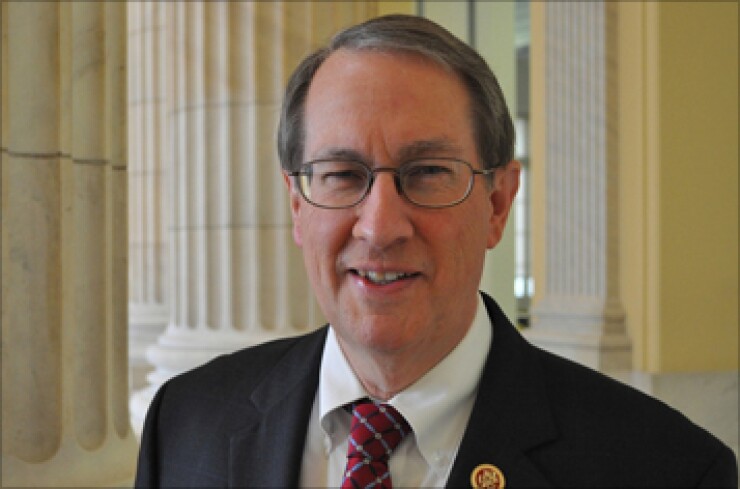
WASHINGTON – House Judiciary Committee chairman Rep. Robert Goodlatte has floated a draft online sales tax bill that would create a "hybrid origin-sourcing" tax framework for sales of products over the Internet.
The Republican from Virginia floated the 16-page draft bill, called the Online Sales Simplification Act of 2016, to committee members and stakeholders on Thursday. It is similar to proposals he previously released.
Under a 1992 Supreme Court ruling in Quill Corp. v. North Dakota online sellers can only be required to collect sales taxes in states where they have a physical presence such as through their headquarters, stores, offices or warehouses.
Critics have complained this system favors online retailers that don't collect sales taxes over brick-and-mortar businesses that do. Several bills have been offered since 1973 to remedy this situation, but none have moved past the House Judiciary Committee.
Goodlatte's bill would allow a state to impose sales taxes on internet sales if: the state is an origin state where the seller has a physical presence and the largest number of employees; the state participates in a statutorily created clearinghouse; and the tax uses the origin state's determination as to what is taxable and the destination state's sales tax rate.
The destination state is where the product purchased over the Internet is delivered. The clearinghouse would be created to, among other things, set up a system for Internet sellers to report sales.
Under the bill, for example, a book seller based in California would sell a book over the Internet to someone in Minnesota. The book seller would collect a sales tax (because California imposes sales taxes on books) at Minnesota's sales tax rate and give the tax revenue to California. California would go through the clearinghouse and give the tax revenue to Minnesota.
The bill raises many issues. For example, what if the remote seller was headquartered in Arkansas, but had a dot-com business based in California, and the greatest number of employees in Texas. Which state is the origin state?
Also, what if a T-shirt business in California sold a T-shirt over the Internet to someone in Minnesota? California imposes taxes on clothing but Minnesota does not. Under the bill, California would collect taxes to go to Minnesota through the clearinghouse, even though Minnesota doesn't tax clothing.
A committee aide said the draft bill is based on two key principles: providing simplicity, particularly for small businesses, and addressing the issue of no regulation without representation. The idea, in the example, is that Minnesota should not be allowed to regulate a California business.
The draft bill is designed to level the playing field for traditional retailers, while keeping compliance simple for online sellers and ensuring states can collect sales taxes that are already due, the aide said.
The draft bill contrasts with the approach favored by state and local government groups and retailers who, in the past, have preferred the Remote Transactions Parity Act measures introduced by Rep. Jason Chaffetz, R-Utah and the Marketplace Fairness Act offered by Sen. Mike Enzi, R-Wyo. Those bills would authorize states that meet simplification requirements to require remote sellers to collect taxes due on items purchased by consumers in those states.
The National Retail Federation said on Thursday that they welcomed Goodlatte's draft bill because "action is needed to break Congress' years-long deadlock on the issue."
"We hope this move will bring attention to get Congress to move forward in treating purchases made online the same as those made in local stores when it comes to sales tax collection," David French, the NRF's senior vice president for government relations, said in a release. "The price advantage held by online sellers when they don't have to collect sales tax has resulted in the shuttering of bricks-and-mortar stores in almost every community across the national over the last few years. This cannot be allowed to continue."
But the NRF did not say it supports the draft. French later told The Bond Buyer, "We've expressed concerns with an origin-sourcing based solution."
State and local government groups said they are still reviewing the bill. But in the past these groups also have express concerns with origin-sourcing, which they say turns traditional state sales tax regimes upside down.





